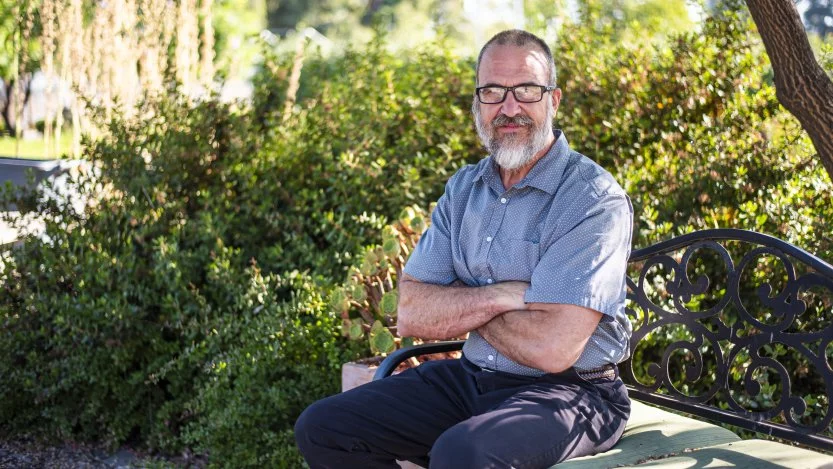Bill Blanken, a chemistry professor at Reedley College, claims that a diversity and equity policy in California’s community colleges amounts to a “loyalty oath.”
Photo courtesy of Foundation for Individual Rights and Expression
A federal judge has dismissed a case filed on behalf of professors claiming that California Community Colleges diversity and equity policies infringe on their academic freedom.
Professors at State Center Community College District, based in Fresno, had, in a suit filed in August 2023, sought to block the California Community Colleges from enforcing diversity, equity, accessibility and inclusion (DEIA) principles.
But U.S. District Judge Kirk E. Sherriff, a Biden appointee who joined the U.S. District Court for the Eastern District of California in 2024, wrote in an order Tuesday that the plaintiffs “failed to allege that there exists a credible threat of enforcement of the regulations against them.”
The plaintiff’s attorney, Daniel Ortner, with the free-speech advocacy group Foundation for Individual Rights and Expression (FIRE), said he was reviewing the decision and discussing it with his clients.
In 2022, the board of governors for the California Community Colleges adopted regulations requiring all 73 of its local districts to evaluate employees, including faculty, on their competency in working with a diverse student population. More than 7 out of 10 of California’s 2.1 million community students are not white, according to enrollment data from the California Community Colleges Chancellor’s Office.
State Center Community College District complied with these regulations with a faculty union contract approved in March 2023. The district declined through a spokesperson to comment on the case.
The push for new diversity, equity, inclusion and accessibility policies came out of a long-running effort to improve student outcomes in the community colleges, but it picked up steam in the wake of the George Floyd protests in 2020.
The original complaint described the professors as critics of anti-racism, who instead support “race-neutral policies and perspectives that treat all students equally.” The complaint stated that requiring faculty to be evaluated on their commitment to diversity, equity, inclusion and accessibility principles is unconstitutional and has a chilling effect on their free speech rights. The professors said they feared receiving disciplinary action or being fired under these new regulations.
Lead plaintiff Loren Palsgaard, an English professor at Madera Community College, said in the complaint that he no longer assigned Martin Luther King Jr.’s “Letter from Birmingham Jail” because it “offer[s] perspectives that are different from the ‘anti-racism’ and ‘intersectionality’ perspective mandated by the DEIA Rules.” Reedley College chemistry professor Bill Blanken said he feared that not mentioning the races of Marie Curie or Robert Boyle means that “he will be accused of failing to adopt a ‘culturally responsive practices and a social justice lens.’”
Judge Sherriff wrote that many of the professors’ concerns arose from documents from the Chancellor’s Office, such as guidance, recommendations, model principles and a glossary of terms. He added that none of these recommendations were formally adopted or legally binding, and that what the professors largely objected to was not in their faculty contract.
Sherriff also noted that the Chancellor’s Office confirmed in court documents that it could not take any action against professors concerning their speech, because decisions regarding employees, such as hiring, performance evaluations and terminations, are the responsibility of the district. The Office also stated that they do not believe that the examples cited by the professors would be precluded by the diversity regulations.
In September, Sherriff dismissed a related suit on behalf of Bakersfield College history professor Daymon Johnson. Sherriff wrote in his order that Johnson lacked standing because the Kern Community College District that employed him had not yet imposed local policies implementing diversity, equity, inclusion and accessibility regulations.
In October, Johnson’s case was filed in the 9th U.S. Circuit Court of Appeals. The State Center Community College professors filed an amicus brief in November in support of Johnson, urging the court to “protect academic freedom across the state by vacating the district court’s decision.”

